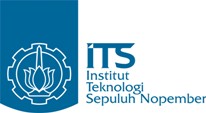Analysis of The Injection Pressure Effect on Single Cylinder Diesel Engine Power with Diesel Fuel-Methanol Blend
Abstract
The use of fossil diesel fuels still produces carbon dioxide emissions (CO2), sulphur dioxide (SO2), hydrocarbon emissions (HC), nitrogen oxide (NOx), and high total particles and carbon monoxide (CO). Moreover, the need for transportation of motor vehicles will always increase every year. The emission of exhaust gases resulting from the combustion process can essentially be reduced by improving fuel quality, the homogeneity of the fuel mixture, and regulating proper combustion. There are several ways to reduce exhaust emissions from diesel engines by providing precise injection pressures. This is done to get the perfect combustion. In addition, improving fuel quality is a way to reduce emissions of exhaust gases. Another one is by adding methanol to the diesel. The addition of methanol can reduce the emission of exhaust gas produced. The process of mixing the solar and methanol takes the addition of surfactants to obtain good homogeneity. Testing was conducted using simulation software with engine modeling. The result can be seen in the reduction and the addition of standard pressure 200 bar, that the emulsion fuel in SFOC (specific fuel oil consumption) suffered a decrease and increased by 0.2% and 0.3% at pressure 160 bar and pressure 240 bar. The fuel solution on SFOC suffered a decrease and an increase of 0.3% and 0.25% was produced by pressure 160 bar and pressure 240 bar. The highest NOx is produced by 240 bar injection pressures with Dexlite fuel while the lowest NOx is produced by 160 bar injection pressure with emulsion fuel.
Keywords
Full Text:
PDFReferences
Sudik, Abdurahman, and W. Aryadi, “Perbandingan Performa Dan Konsumsi Bahan Bakar Motor Diesel Satu Silinder Dengan Variasi Tekanan Injeksi Bahan Bakar Dan Variasi Campuran Bahan Bakar Solar, Minyak Kelapa Dan Minyak Kemiri,” Automot. Sci. Educ. J., vol. 2, no. 2, p. 34, 2013.
R. Abu Bakar, S. Ismail, and A. R. Ismail, “Fuel injection pressure effect on performance of direct injection diesel engines based on experiment,” Am. J. Appl. Sci., vol. 5, no. 3, pp. 197–202, 2008, doi: 10.3844/ajassp.2008.197.202.
Ismanto, “Analisis Variasi Tekanan Pada Injektor Terhadap Performace (Torsi Dan Daya) Pada Motor Diesel,” Tek. Mesin Univ. Janabadra Yogyakarta, vol. 2, no. 1, pp. 25–31, 2012.
S.P. Nugraha, "Pengaruh tekanan injeksi pada motor diesel direct injection terhadap kinerja dan NOx,” Bachelor Thesis, Institut Teknologi Sepuluh Nopember, 2017.
C. Sayin, M. Ilhan, M. Canakci, and M. Gumus, “Effect of injection timing on the exhaust emissions of a diesel engine using diesel-methanol blends,” Renew. Energy, vol. 34, no. 5, pp. 1261–1269, 2009, doi: 10.1016/j.renene.2008.10.010.
Q. Angga Ramadhany, “Studi Eksperimen Pengaruh Variasi Timing Injeksi (Start of Injection) Terhadap Unjuk Kerja Dan Emisi Mesin Diesel 4-Langkah Silinder Tunggal Berbahan Bakar Campuran Dexlite dan Etanol,” p. 182, 2017.
C. Sayin, “Engine Performance and Exhaust Gas Emissions of Methanol and Ethanol-Diesel Blends,” Fuel, 2010, doi: 10.1016/j.fuel.2010.02.017.
Z. H. Huang et al., “Combustion characteristics and heat release analysis of a compression ignition engine operating on a diesel/methanol blend,” Proc. Inst. Mech. Eng. Part D J. Automob. Eng., vol. 218, no. 9, pp. 1011–1024, 2004, doi: 10.1243/0954407041856818.
A. K. Agarwal, N. Sharma, A. P. Singh, V. Kumar, D. P. Satsangi, and C. Patel, “Adaptation of methanol-dodecanol-diesel blend in diesel genset engine,” J. Energy Resour. Technol. Trans. ASME, vol. 141, no. 10, 2019, doi: 10.1115/1.4043390.
F. Isnaini and A. Zuhdi M. Fathallah, “Analisa PerfomaMotor Diesel Berbahan Bakar Komposisi Campuran Antara Minyak Tuak Minyak Diesel Yusuf Dengan,” vol. 2, no. 2, pp. 1–6, 2013.
S. Zuhri, "Pengaruh penggunaan emulsi metanol dalam bahan bakar biodiesel minyak kemiri (aleurites moluccanus) terhadap performa dan emisi NOx”, Bachelor Thesis, Institut Teknologi Sepuluh Nopember, 2019.
J. Oliver, “THE EFFECT OF METHANOL-DIESEL BLENDED RATIO ON CI ENGINE PERFORMANCE,” J. Chem. Inf. Model., vol. 53, no. 9, pp. 1689–1699, 2013, doi: 10.1017/CBO9781107415324.004.
DOI: http://dx.doi.org/10.12962%2Fj25481479.v7i2.12884
Refbacks
- There are currently no refbacks.
 |  |  |  |
| |  |  |
|
|
|
|
|
P-ISSN: 2541-5972
E-ISSN: 2548-1479
IJMEIR journal published by Department of Marine Engineering, Faculty of Marine Technology, Institut Teknologi Sepuluh Nopember Surabaya Indonesia under licenced Creative Commons Attribution-ShareAlike 4.0 International Licence. Based on https://iptek.its.ac.id/index.php/ijmeir/


1.png)
